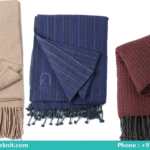Nepali Pashmina Factory Pashminalooms | Ethical Standards at Nepali Pashminalooms | Nepali Pashmina production process |Private Label Pashmina Products | 100% pure pashmina products
Introduction:
Nepali pashmina (pashmina from Nepal)is not just a luxurious accessory – it’s a symbol of timeless elegance and exquisite craftsmanship. For centuries, Nepali artisans have been weaving soft, warm, and lightweight shawls(pashmina twill shawl, pashmina shawl diamond), scarves, and pashmina blankets( Twill pashmina blankets, Diamond pashmina blankets, pashmina blankets with silk border, pashmina blankets with knitted border) using the wool of Himalayan mountain goats in different weave types like twill 100% pure. Today, Pashminalooms the Nepali Pashmina Factory is one of the leading manufacturers of authentic pashmina products, renowned for its premium quality( 100% pashmina products), sustainability, and ethical production practices including pashmina customizable products( Private label pashmina products, white label pashmina products).
In this article, we’ll take you on a journey to the heart of the Nepali Pashmina Factory “Pashminalooms”, exploring its history, production process, and commitment to sustainability and social responsibility. From the high-altitude pastures of Nepal to the skilled hands of the artisans, you’ll discover the secrets behind the world’s most coveted pashmina products.
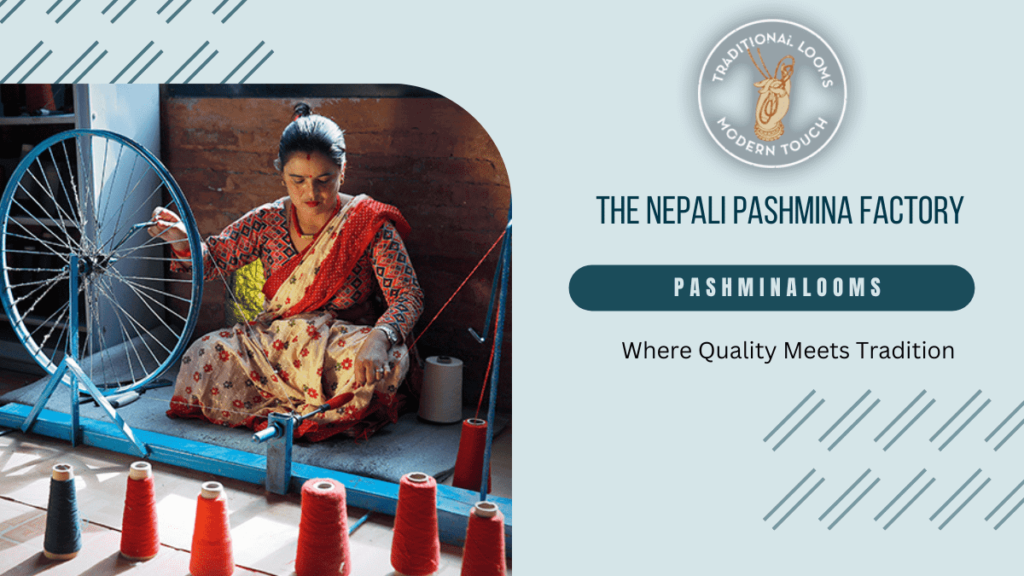
History of pashmina in Nepal
The history of Nepali pashmina dates back centuries, to a time when the wool of the Himalayan mountain goats was discovered for its exceptional softness, warmth, and lightweight qualities. Pashmina, which comes from the Persian word “pashm,” meaning wool, was first used by the royalty and elite of ancient civilizations in the Himalayas and Central Asia.
In Nepal, pashmina has been a part of the cultural heritage and trade for centuries. It was during the Malla period (1200-1769) that the production and trade of pashmina became a significant part of Nepal’s economy. Pashmina products, such as shawls and scarves, were highly sought after by the nobility in Nepal and neighboring countries, and the trade of pashmina was controlled by the king himself.
During the Rana period (1846-1951), the pashmina industry saw a decline due to political instability and changing fashion trends. However, it was revived in the 1960s, thanks to the efforts of the Nepali government and international organizations, which recognized the potential of Nepali pashmina in the global market.
Today, the Pashminalooms is a proud representative of Nepal’s rich cultural heritage and artisanal skills. It continues to preserve the tradition of pashmina production through its meticulous craftsmanship, quality standards, and ethical practices. The factory is committed to providing fair wages and safe working conditions for its artisans, supporting community development and empowerment, and promoting sustainable and environmentally-friendly practices.
From Fibers to Fabrics: The Pashmina Production Process
The production of pashmina involves skilled craftsmanship and attention to detail, which is why it is considered a luxury fabric. The Nepali Pashmina Factory “pashminalooms” takes pride in its artisanal skills and ethical practices, which ensure that each pashmina product is of the highest quality and made with respect for both the environment and the artisans involved in the production process.
The Artisans of Pashminalooms
Pashminalooms is home to some of the most skilled artisans in the world, who are dedicated to preserving the tradition of pashmina production and creating exquisite products. These artisans are not only skilled in the art of spinning, weaving, and finishing pashmina fabric, but they also bring their own unique creativity and artistry to each product.
Many of the artisans at the pashminalooms come from families who have been involved in the pashmina industry for generations. They have learned the skills and techniques of pashmina production from their elders and are now passing on these skills to the next generation.
One of the unique aspects of the pashminalooms is its commitment to ethical and sustainable practices. The factory ensures that its artisans are paid fair wages and work in safe and healthy conditions. It also supports community development and empowerment by investing in education and healthcare initiatives in the local community.
In addition to their technical skills, skilled artisans in the pashmina industry also bring deep cultural knowledge and appreciation to their work. They are intimately familiar with the traditions and history of the industry, and their work often reflects these influences.
To address this challenge, it is important to invest in education and training programs that can help young people learn the skills required for the pashmina industry. By providing opportunities for young people to learn about the industry and develop their skills, we can help ensure that this important cultural tradition continues for generations to come.
Quality Control and Ethical Standards at Nepali Pashmina Industry “pashminalooms”
Pashminalooms is committed to producing high-quality pashmina products while upholding ethical standards and sustainability practices. Quality control and ethical standards are at the forefront of all aspects of the production process, from the sourcing of raw materials to the creation of the final product.
Quality Control
The Nepali weaving industry “pashminalooms” ensures that all of its products meet high-quality standards through a rigorous quality control process. Raw materials are carefully sorted and cleaned to remove any impurities that may affect the quality of the final product. The yarns are spun and woven using traditional techniques, and each product is checked for consistency in texture, color, and design. Any product that does not meet the quality standards is rejected and either recycled or repurposed.
Ethical Standards
Pashminalooms is committed to ethical standards and sustainability practices in all aspects of its operations.. It also supports community development and empowerment by investing in education and healthcare initiatives in the local community.
The factory promotes sustainable and environmentally-friendly practices by using natural dyes and reducing waste through the recycling and upcycling of materials. The factory also ensures that all of its raw materials are sourced ethically and sustainably, without causing harm to animals or the environment.
Sustainable Practices and Social Responsibility
The Nepali Pashmina industry “pashminalooms” is committed to sustainable practices and social responsibility in all aspects of its operations. From the sourcing of raw materials to the production of final products, the factory strives to minimize its environmental impact and promote social and economic well-being in the local community.
Sustainable Practices
Pashminalooms promotes sustainable practices by using natural and organic materials in its production process. The factory sources its raw materials from sustainable and ethical sources, ensuring that the production of pashmina does not contribute to environmental degradation or harm to animals. The factory minimizes waste through recycling and upcycling materials.
Environmentally-Friendly Production Practices
The Pashmina Factory is committed to environmentally-friendly production practices in all aspects of its operations. The factory recognizes the importance of minimizing its environmental impact and preserving natural resources for future generations.
Raw Materials
The Pashmina industry (Pashminalooms) sources its raw materials from sustainable and ethical sources to ensure that the production of pashmina does not contribute to environmental degradation or harm to animals. The factory uses natural fibers and organic materials, avoiding harmful chemicals and synthetic materials. The factory also promotes the use of natural dyes and minimizes waste through recycling and upcycling materials.
Water Conservation
The factory has implemented water conservation practices to reduce its water consumption and minimize water waste. The factory has installed water-efficient equipment and implements recycling and reuse practices to minimize water use in its production process.
Certifications
The pashminalooms has received several certifications for their sustainable and socially responsible practices, including (our certificates). These certifications ensure that the factory operates according to strict ethical and sustainability standards and that its products are of the highest quality.In conclusion, the Nepali Pashmina Factory is committed to sustainable practices and social responsibility in all aspects of its operations. The factory’s commitment to minimizing its environmental impact and promoting social and economic well-being makes it a leader in the pashmina industry and a model for other companies to follow. By supporting the Nepali Pashmina Factory, customers can feel confident that they are contributing to a sustainable and socially responsible industry.
Pashminalooms’ Best-Selling Products
Pashminalooms offers a vast range of products, but some of its best-selling items are:
Pashmina Shawls: Pashmina shawls are a timeless classic that can add elegance and sophistication to any outfit. Pashminalooms offers a wide range of shawls, from plain solid colors to intricately embroidered designs.
Nepali Pashmina shawls are a symbol of luxury and elegance. They are not just fashion accessories but also an important part of Nepal’s heritage and culture. The tradition of weaving pashmina shawls has been passed down from generation to generation, and it continues to be an essential part of the country’s economy. A Nepali Pashmina shawl is a must-have for anyone who appreciates beauty, quality, and craftsmanship.
Pashmina Blankets: Pashmina blankets are the epitome of luxury and comfort. Made from the finest grade of pashmina wool, these blankets are perfect for snuggling up on a cold winter night.
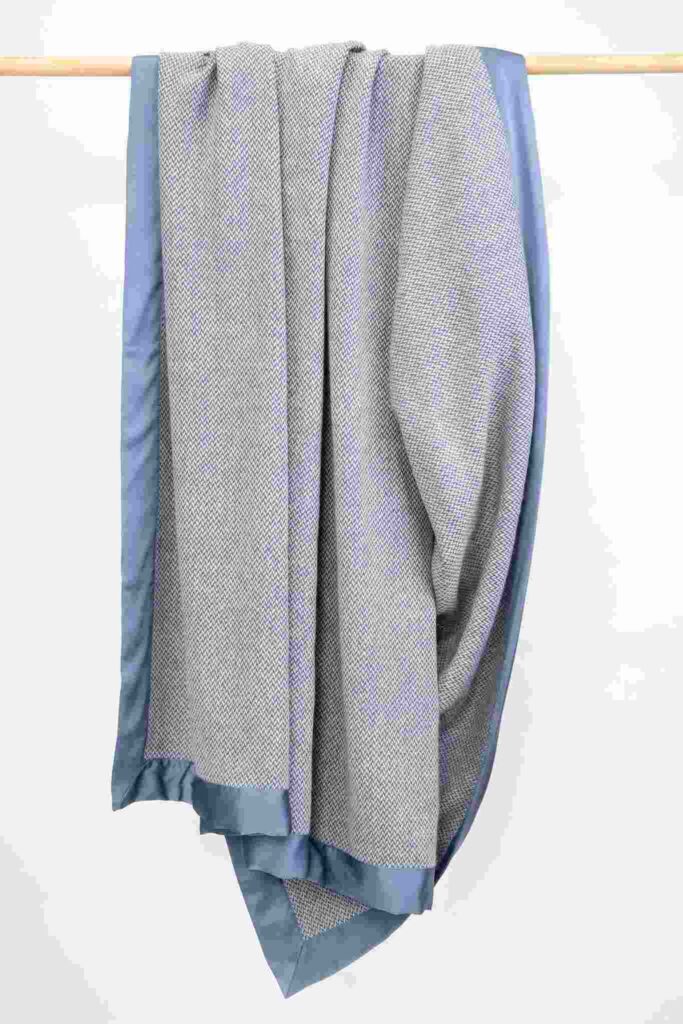
Pashmina Scarves: Pashmina scarves are versatile accessories that can add a touch of sophistication to any outfit. Pashminalooms offers a wide range of scarves in different colors, designs, and sizes.Tourists visiting Nepal often purchase Nepali pashmina scarfs as souvenirs or gifts for their loved ones. Nepali Pashmina scarfs make a perfect gift, as they are not only stylish but also functional. They can be worn in different ways, depending on the occasion and personal style.
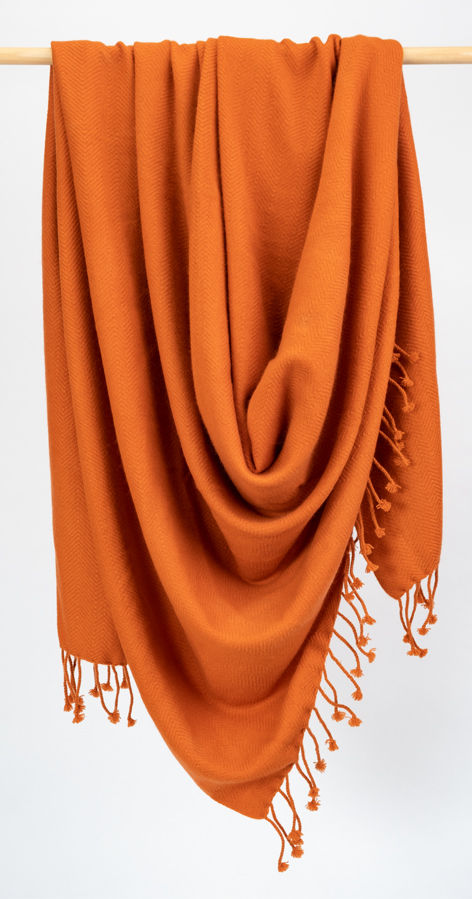
Pashmina Mufflers: Pashmina mufflers are perfect for keeping warm in style. These mufflers are available in a variety of colors and designs to suit any taste.
pashmina travel set: Our pashmina travel sets are lightweight, yet warm and cozy, making them perfect for long flights or train rides. The eye mask included in the set helps you get a good night’s sleep, even in bright surroundings. The travel pillow is designed to provide comfortable neck support, so you can rest easy while you travel. In addition to our standard pashmina travel sets, we also offer customized sets that can be personalized with your name or initials.
These personalized sets make great gifts for friends, family, or colleagues who love to travel. So, if you’re planning your next trip, don’t forget to pack a pashmina travel set from Pashminalooms. With our high-quality products and commitment to customer satisfaction, we are sure that you will love your new travel accessory.
Pashmina sampling
PashminaLooms is a Pashmina supplier based in Nepal that offers sampling for their Pashmina products. The company understands the importance of sampling to ensure the quality and design of its products meet the requirements of its clients.
When working with PashminaLooms, they will provide you with a sample of the product that you are interested in, whether it’s a shawl, scarf, stole, or blanket. The sample will be a small version of the final product, but it will give you a good idea of the quality, texture, and color of the Pashmina.
PashminaLooms’ team of experienced designers will work with you to create a customized sample that matches your specific design and color requirements. They will also provide packaging options that align with your brand identity.
Once you receive the sample, it’s important to inspect it carefully. Check the quality of the Pashmina wool, the stitching, and the overall craftsmanship. Make sure that the color and design match your requirements, and that the packaging is in line with your brand identity.
If you’re happy with the sample, you can then proceed with placing a larger order. If you’re not satisfied with the sample, communicate your concerns to the PashminaLooms team, and they will work with you to make any necessary changes before proceeding with a larger order.
PashminaLooms takes pride in its sampling process and ensures that clients receive a high-quality product that meets their requirements. They understand the importance of sampling to avoid any surprises or disappointments when placing a larger order.
Private Label Pashmina Products in pashminalooms
PashminaLooms is a Pashmina manufacturer based in Nepal that offers private-label Pashmina products. The company has been in the Pashmina industry for over a decade and has a reputation for producing high-quality Pashmina products.
PashminaLooms offers a range of Pashmina products, including shawls, scarves, stoles, and blankets, which can be customized to match your brand.
The company has a team of experienced Team who can work with you to create a unique design that reflects your brand identity. They offer a range of customization options, including colors, patterns, and packaging.
PashminaLooms’ private-label Pashmina products are popular among retailers who want to offer high-quality Pashmina products under their own brand. The company offers competitive pricing and fast turnaround times, making it an attractive option for retailers who need to meet tight deadlines.
In addition to private label products, PashminaLooms also offers wholesale Pashmina products for retailers who prefer to sell under the PashminaLooms brand. They also offer dropshipping services, which can be convenient for retailers who don’t want to handle inventory and shipping.
Overall, PashminaLooms is a reliable supplier of private-label Pashmina products in Nepal. They offer high-quality products, customization options, competitive pricing, and fast turnaround times.
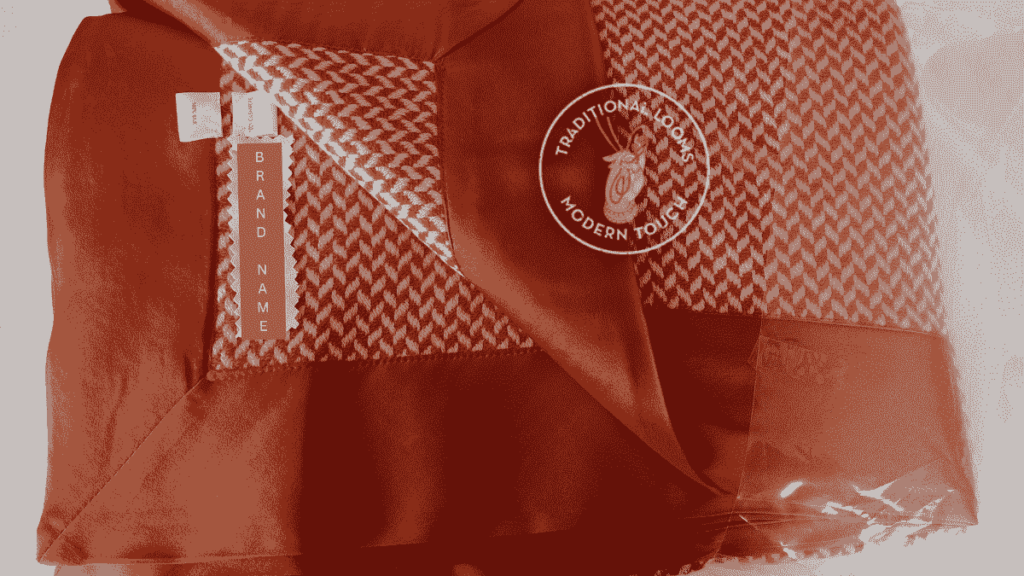
The Benefits of Wearing Nepali Pashmina
Nepali Pashmina has several benefits that make it a popular choice for clothing and accessories. Here are some of the benefits of wearing Nepali Pashmina:
- Softness: Nepali Pashmina is known for its softness and feels luxurious against the skin.
- Warmth: Pashmina is an excellent insulator, and its natural fibers provide warmth without being bulky.
- Durability: Nepali Pashmina is long-lasting and can be worn for years with proper care.
- Versatility: Pashmina shawls and scarves come in various colors and styles, making them versatile accessories that can be worn with many outfits.
How to Care for Nepali Pashmina
To keep your Nepali Pashmina in top condition, follow these simple care instructions:
- Hand wash or dry clean only.
- Use a mild detergent and lukewarm water.
- Do not wring or twist the fabric.
- Lay flat to dry.
- Store in a cool, dry place, away from sunlight and moisture.
Q: What is Nepali Pashmina?
Nepali Pashmina is a luxurious fabric made from the wool of the Himalayan mountain goat, Capra hircus. The wool is carefully collected, processed, and woven into fine, soft fabrics that are prized for their warmth and beauty.
Q: What is the Nepali Pashmina Factory?
The Nepali Pashmina Factory is a company that specializes in the production of high-quality pashmina products. The factory is located in Nepal and is committed to environmentally-friendly production practices and social responsibility.
Q: What products does the Nepali Pashmina Factory produce?
The Nepali Pashmina Factory produces a range of pashmina products, including scarves, shawls, wraps, blankets, and other accessories. The factory also produces custom-made products according to customer specifications.
Q: Are the products from the Nepali Pashmina Factory ethically made?
Yes, the Nepali Pashmina Factory is committed to ethical production practices and employs artisans who are paid fair wages and work in safe and healthy conditions. The factory also sources its materials from ethical and sustainable sources.
Q: Can I visit the Nepali Pashmina Factory?
Yes, the Nepali Pashmina Factory welcomes visitors who are interested in learning about the production process and seeing the artisans at work. The factory also offers tours and workshops for those who want to learn more about pashmina production.
Q: How do I care for my Nepali Pashmina product?
Pashmina products should be hand-washed in cold water and laid flat to dry. Avoid using harsh detergents or bleach, and do not wring or twist the fabric. Iron on low heat if necessary. With proper care, your Nepali Pashmina product will last for many years.
Q: Is the Nepali Pashmina Factory committed to sustainability?
Yes, the Nepali Pashmina Factory is committed to environmentally-friendly production practices and uses renewable energy sources, sustainable raw materials, and implements waste reduction practices. The factory has received several certifications for its sustainable practices.
Q: How does the Nepali Pashmina Factory support the local community?
The Nepali Pashmina Factory is committed to community development and empowerment programs, including investing in education, healthcare, and economic opportunities in the local community. The factory provides employment opportunities to local artisans, supports small business development, and provides scholarships for children from disadvantaged backgrounds. The factory also builds schools and health clinics to improve access to education and healthcare in the local community.
Q. Where is the pashmina shawl manufactured?
Pashmina shawls are primarily manufactured in Nepal, which is known for its high-quality cashmere wool sourced from the Himalayan Chyangra goat. Nepali artisans and craftspeople have been producing pashmina shawls for centuries, and today, the country is a leading exporter of pashmina and cashmere products worldwide. Pashminalooms produce their exclusive and premium cashmere collections in Nepal, further cementing the country’s reputation as a hub for high-end cashmere manufacturing.
Q. Can white-label Pashmina products be customized to match my brand?
Yes, white-label Pashmina products can be customized to match your brand. When working with Pashminalooms in Nepal, you can provide specific design and color requirements to ensure that the final product reflects your brand identity. You can also customize the packaging and labeling of the product with your own logo and branding.
Pashminalooms has experience working with retailers to create customized white-label products. They can provide samples and work closely with you to ensure that the final product meets your specifications and quality standards.
By working with a reliable supplier, you can ensure that your customized white-label Pashmina products meet your quality standards and are delivered on time.

